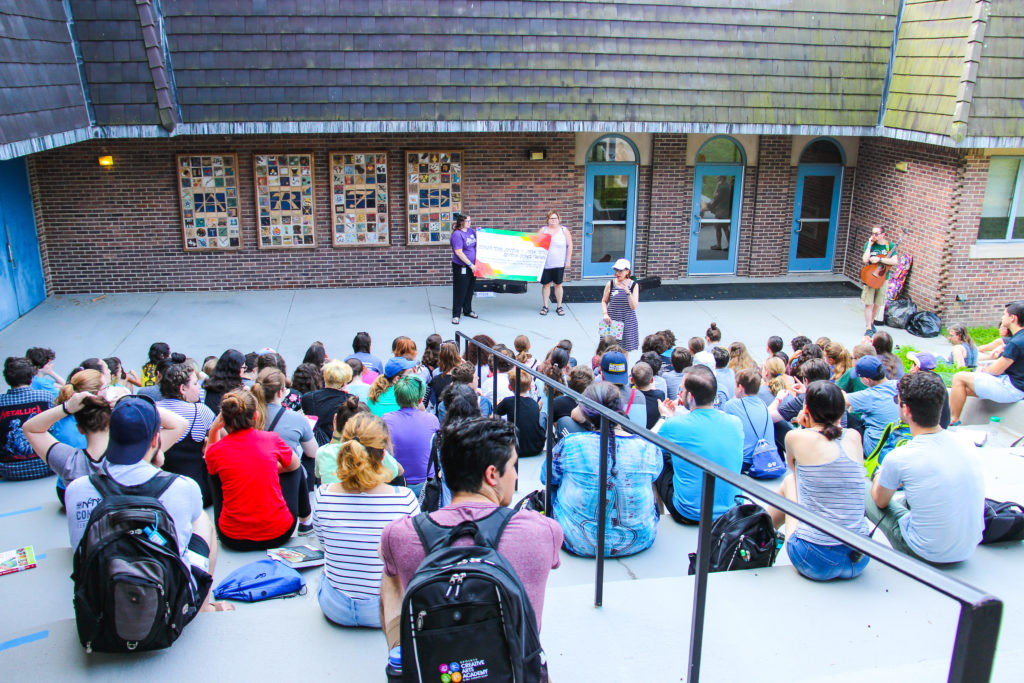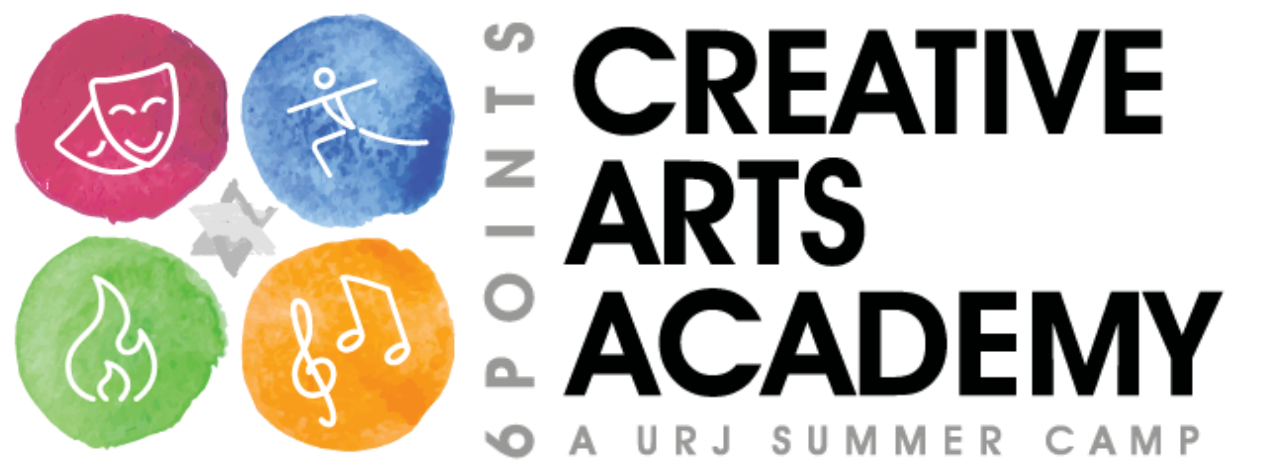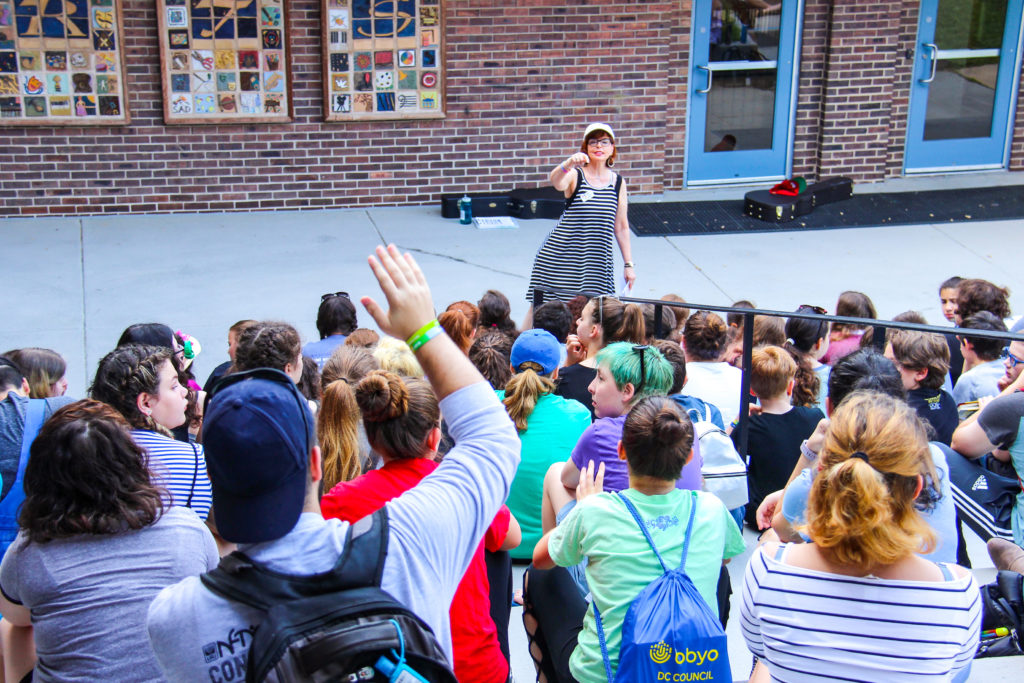By Rabbi Leah Berkowitz, Congregation Kol Ami, Elkins Park, PA, Session 3 Faculty
One of the most exciting things about being at a camp during its inaugural summer is watching a new culture take shape. What language will we use for the places on camp? What motions will we encourage (or discourage) during Birkat Hamazon? What will be our special take on the “Announcements” song (CAA’s is amazing!)? And how will we incorporate prayer into our camp routine?
I’ve now had the privilege of experiencing tefillah at six of our URJ Camps, and each one is as unique as a fingerprint. One camp prays twice daily out of a Hebrew-only siddur, another twice a week off a prayer card, adding camper reflections in between each prayer. At one camp, the day starts with a lively song-session style tefillah, while at another (you can probably guess which), a brief morning prayer is followed by a (contained) explosion called the “Boker Big Bang.”
When developing tefillah for our summer camps, we have to consider the balance of encouraging prayer literacy and making meaning for our community. How do we get the most of each out of our prayer moments, when we have a limited amount of time?
CAA’s day starts with a Mo Moment (short for “Modeh Ani,” the first prayer traditionally said in the morning). Sitting together on the steps outside of the art building, we sing our way through a few of our morning prayers, each in a beautiful musical setting, sometimes in five-part harmony. Each prayer has a balance of Hebrew and English lyrics that help us to connect the prayers to our own lives. Elohai N’shama is paired with “Awake my soul…,” a perfect entryway into prayer for sleepy tweens and teens.
This is bookended with Noah Aronson’s “Am I Awake,” helping us to get ready for our day. Though we only sing the English verse during daily Mo Moments, by Shabbat campers are familiar with the melody as it leads into the Barchu.
At the center of our Mo Moment, a faculty member connects one of the Nisim B’Chol Yom, or Daily Miracles, to one of our core values—Sakranut (Curiosity), Yetzirah (Creativity), Ometz Lev (Grit), and Melacha (Craftsmanship).
The most meaningful part of Mo Moments for me has been singing Dan Nichol’s “Beautiful and Broken”—an interpretation of Asher Yatzar, our prayer over the body. Each morning, we sing, “I am perfect the way I am, and a little broken too.” This is a verse that sticks with the people in our community. We apply it to ourselves, of course: we struggle with our own limitations, even as we try to accept ourselves the way we are.
But we also see campers and staff applying it to the artistic process. When something doesn’t turn out exactly as planned—or even when something we are working on actually breaks—we have this verse in our back pocket, reminding us that broken can be beautiful too.
CAA’s leadership clearly chose each prayer and arrangement with intention. It was as if each prayer was designed to stick with our campers, so that, in camp and beyond, we can draw on their wisdom in our art and in our lives.

